I'm not really going to go through any magical frameworks or any growth hacks. I'm going to share stories about some red pill moments I've been through in my career and moments that have really changed my perspective.

This article is predominantly about perspective. Specifically about what it takes to win against IT competition.
Skype
My story starts at Skype. I'll take you back to the beginning of 2009. I started as a PM at Skype, I got to work with some great people, we worked on a ton of features.

I got to work on group video calling, led the team on video messaging, started looking at mobile around screen sharing and Skype Wi-Fi. A whole ton of features.
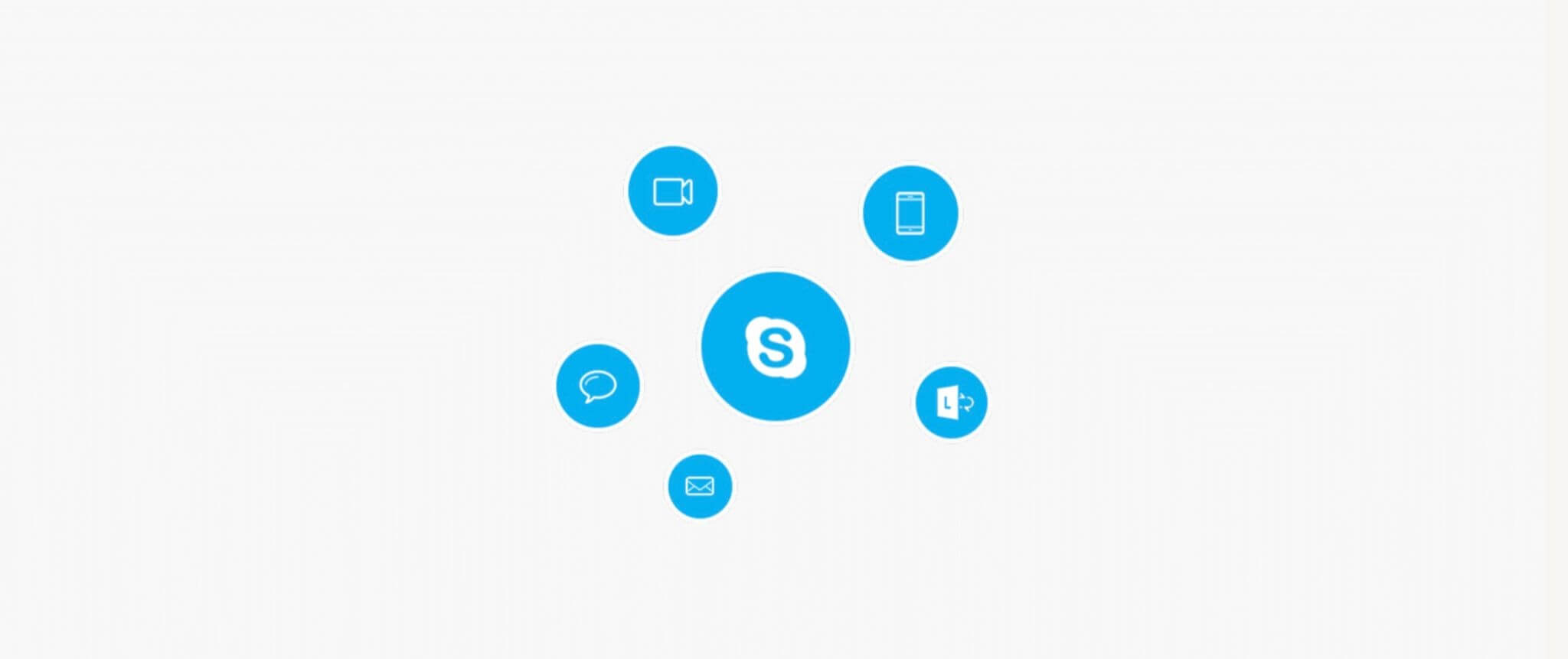
In the first year to 18 months, we got to see great growth; 50% growth in active users and in revenue. All was good. A lot of our time was spent on product development.

But, around the same time, 2009, this thing popped up…
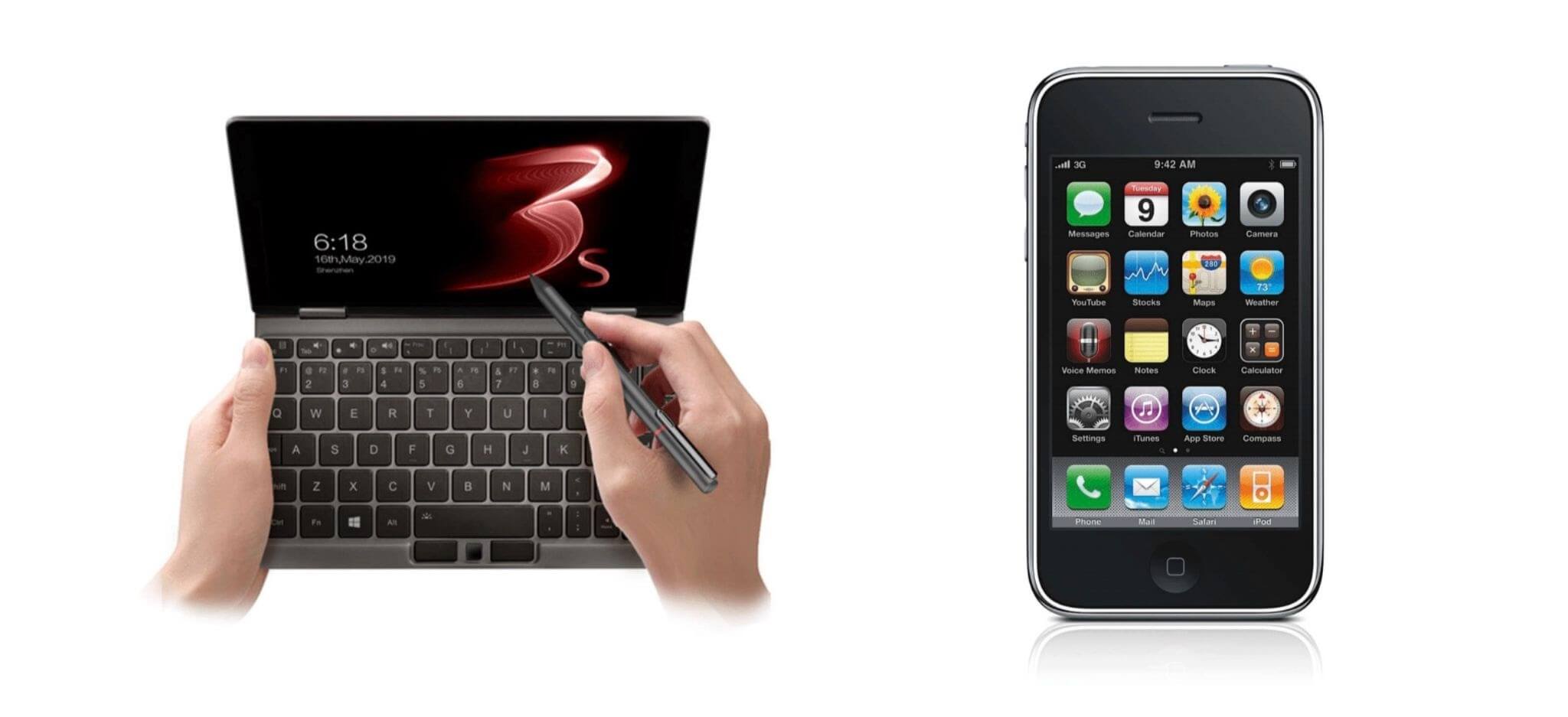
This was referred to as a netbook and the netbook was seen as the next big thing. It was this mini laptop. They were packed high in PC World and analysts were talking about this as the next big thing.
Smartphones
But, of course, there was also the thing on the right.
Not many people had these, you'd be surprised. It wasn't that common, even in 2009. No front-facing camera, the battery life sucked, the calling quality was awful, and yet, there were still some experts saying this is going to be the next big thing; the smartphone.

At Skype, we were having discussions about this.
- Where do we invest?
- What's going to be big?
- Where do we put our resources?
You know how this story plays out.
People moved very quickly to mobile and they went from calling to messaging very quickly. We saw this shift, not just in technology, but actually in societal trends.
2009 was also the year WhatsApp launched. They are a whisker away from having 2 billion active users. Just think about that.
That's a quarter of the planet using this app, every single day.

In the intermediary time, Skype went into decline.
Why did WhatsApp succeed where Skype failed?
I got to see the rise and the fall of these two companies. It was very interesting to see how that played out. Let's look into that and reverse engineer this.
The strategic stool
As I see it, there are three legs to the strategic stool.

Simple interface
The first one is they had a very simple interface. You might be thinking "Obviously that's important. That's almost like table stakes these days" but bear in mind, prior to this, you had these instant messaging apps, you'd be online, you'd be offline, and you'd just talk to people who were online.
Whatsapp changed that entirely, they did away with online/offline. I remember a friend of mine asked me "Are you using WhatsApp?" and it was below my radar at the time. I said, "No, what is it?" And she said to me, "It's like free SMS!"
But when she showed me the interface, I could see what she meant. As far as she was concerned, it was free SMS. If you know how to use SMS, you know how to use this app. You didn't have to be particularly sophisticated to use this.
It also had very low battery consumption.
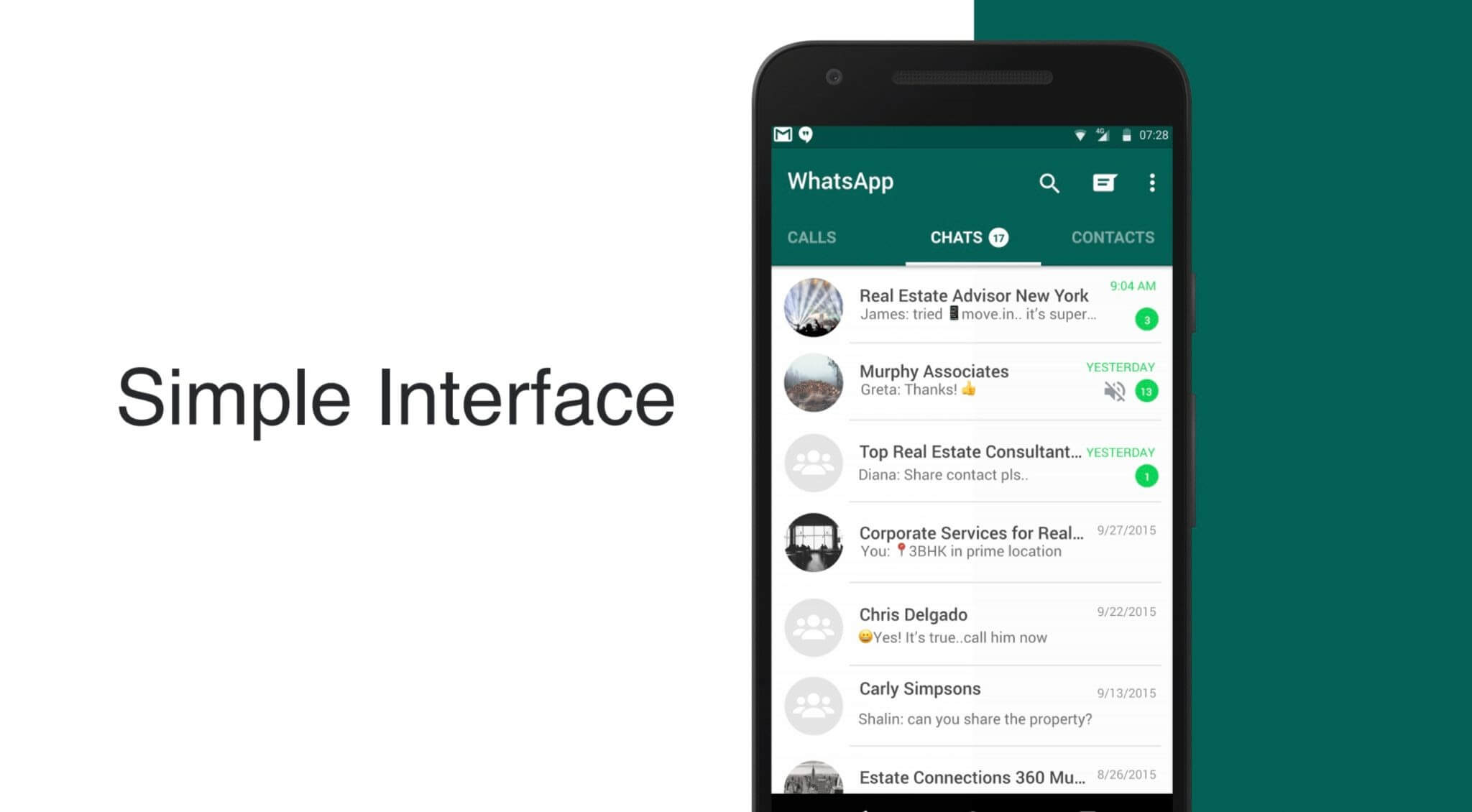
Critical mass
Secondly, they built a critical mass in a very short space of time. One way they did that is by blurring the lines between sending a message and inviting someone to WhatsApp.
So, you look at your contact list. If they're on WhatsApp, that's great, you send the message. If they're not, that message is just transformed into an invite.
They also developed tier two, tier three, telco partnerships. They’ve got WhatsApp pre-installed and so from the get-go, they had a few hundred thousand people already using this thing. This helped ignite their growth.
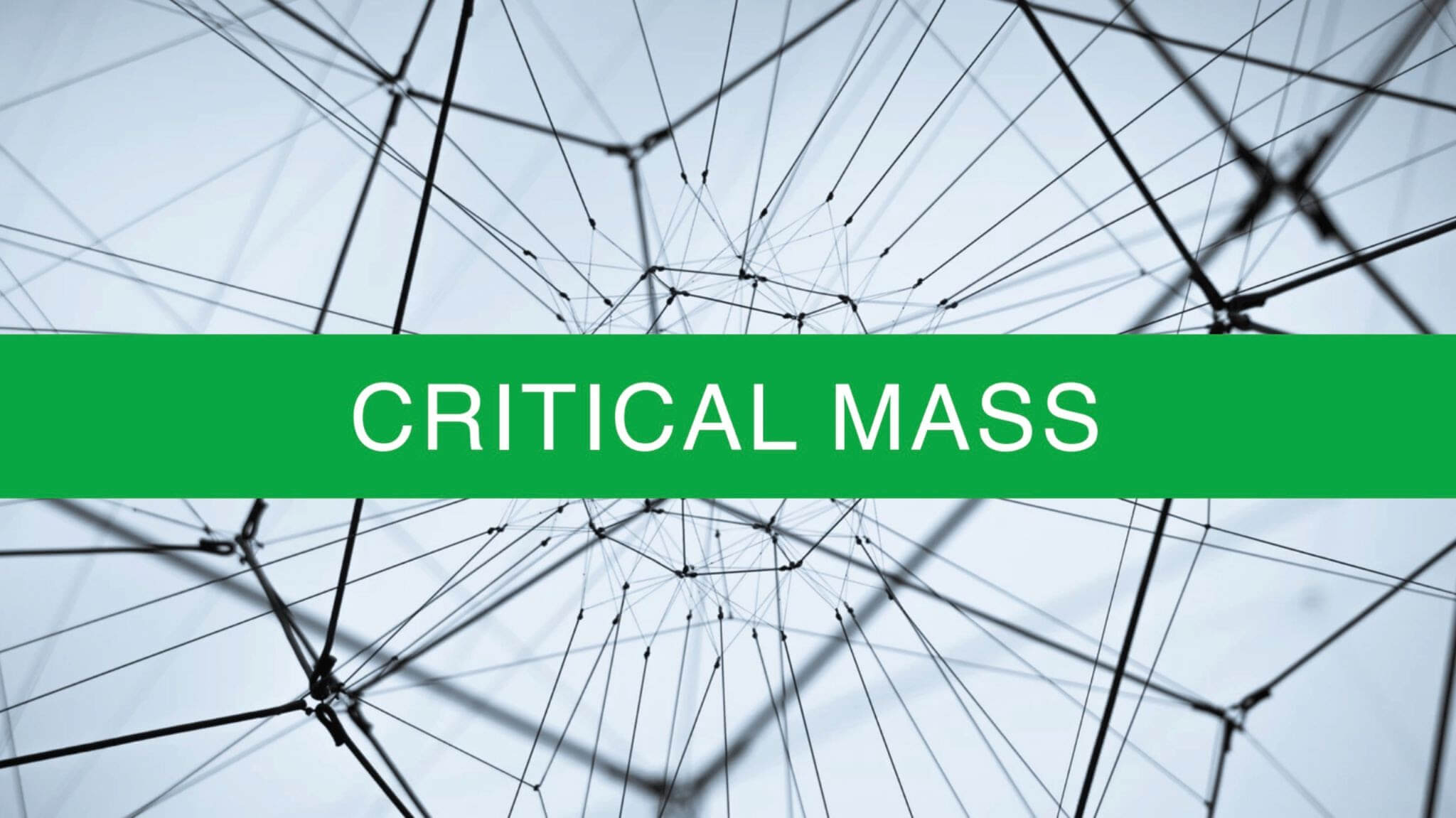
But it was this third leg that was the killer move.
Short circuit contacts
A bit of an 'Aha' moment for me. Before this, you had to first sign into the app. Often you'd forget that password and so often people just sign up again. Then, you had to find your friend and if they were called John Smith, good luck with that.
And your friend might call themselves Gumball3000, and again, you're just not going to find them at that point unless they specifically tell you that name.
Assuming you found them, you had to then send a contact request. They had to accept the contact request. And, if you were both online at the exact same time, you can start a conversation.
This whole process could take days, if not a week. In some cases, I've heard of multiple weeks. Whatsapp came along and removed all five friction points, immediately. They were big game-changers.

Strategy
Think about WhatsApp, they don't really have many features. I talked about all the features we were working on at Skype, we had over 1,000 people working on Skype. WhatsApp, at the time of acquisition, had 55.
$19 billion, 55 employees.
Their strategy was simple - how can we reduce the time to the first conversation to almost nothing?
That's what they focused on. That's what they doubled down on.

They knew if you can get connected to your contacts immediately - job done.
Let's think about this another way. Here's Skype, and here are our competitors…
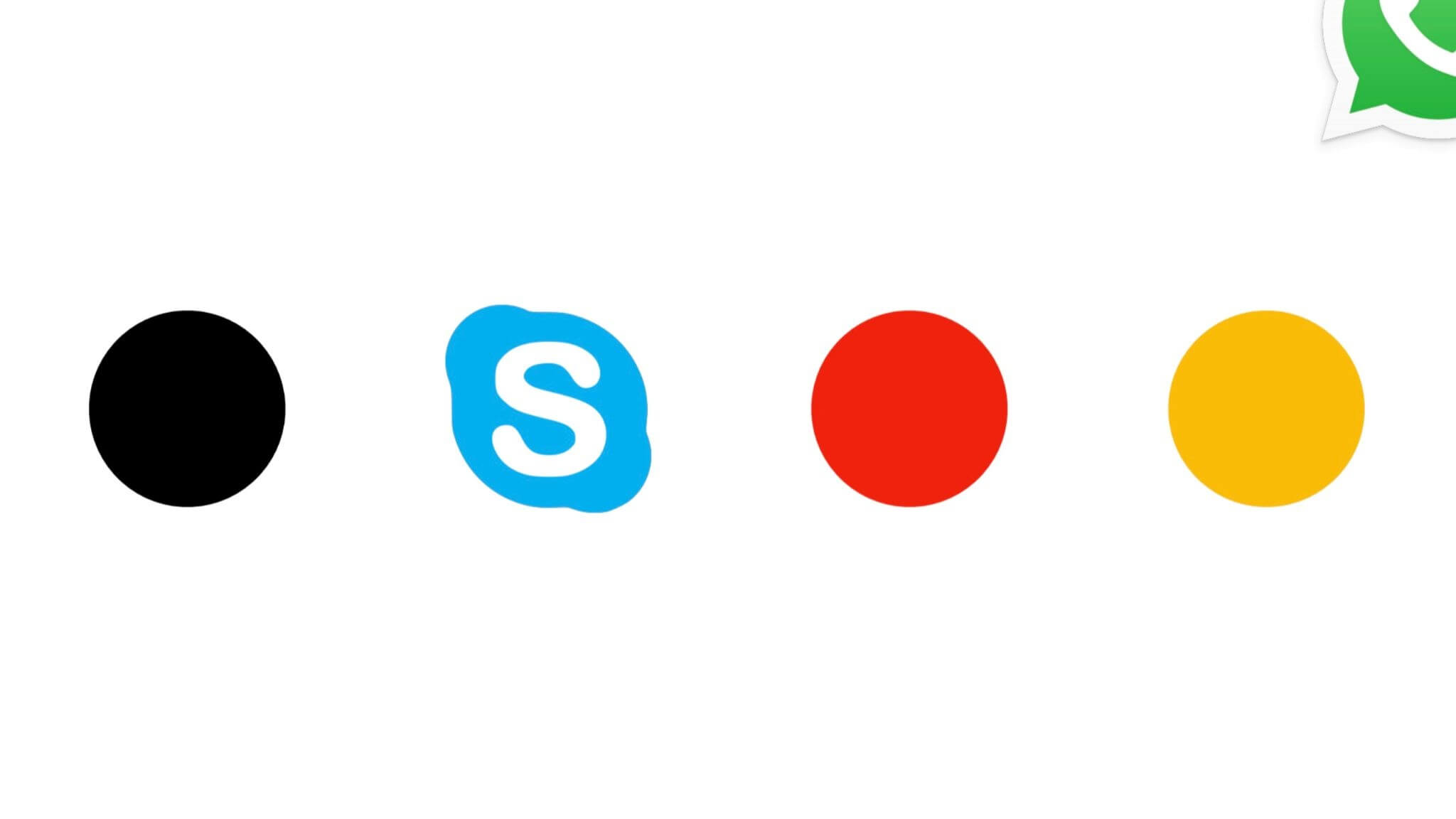
At Skype, our attention went to people like us. It went to desktop calling apps. Whatsapp wasn't really on our radar. I didn't pick up on them, maybe until a year after they launched.
Even when they did appear, we barely paid any attention to them. When we paid attention to them, though, they were quite a different app.
We were really a desktop calling app and they were a mobile messaging app. They were actually competing by a slightly different dimension. In some ways, it was very easy to think they're not really a competitor.
Your competition is often not who you think it is
But of course, we were all in the business of communications and so, it didn't take very long for them to be a front-on competitor to us. By that time it was too late.
Your competition is often not who you think it is. You pay attention to the competitor that's in front of you, the competitor that you see.
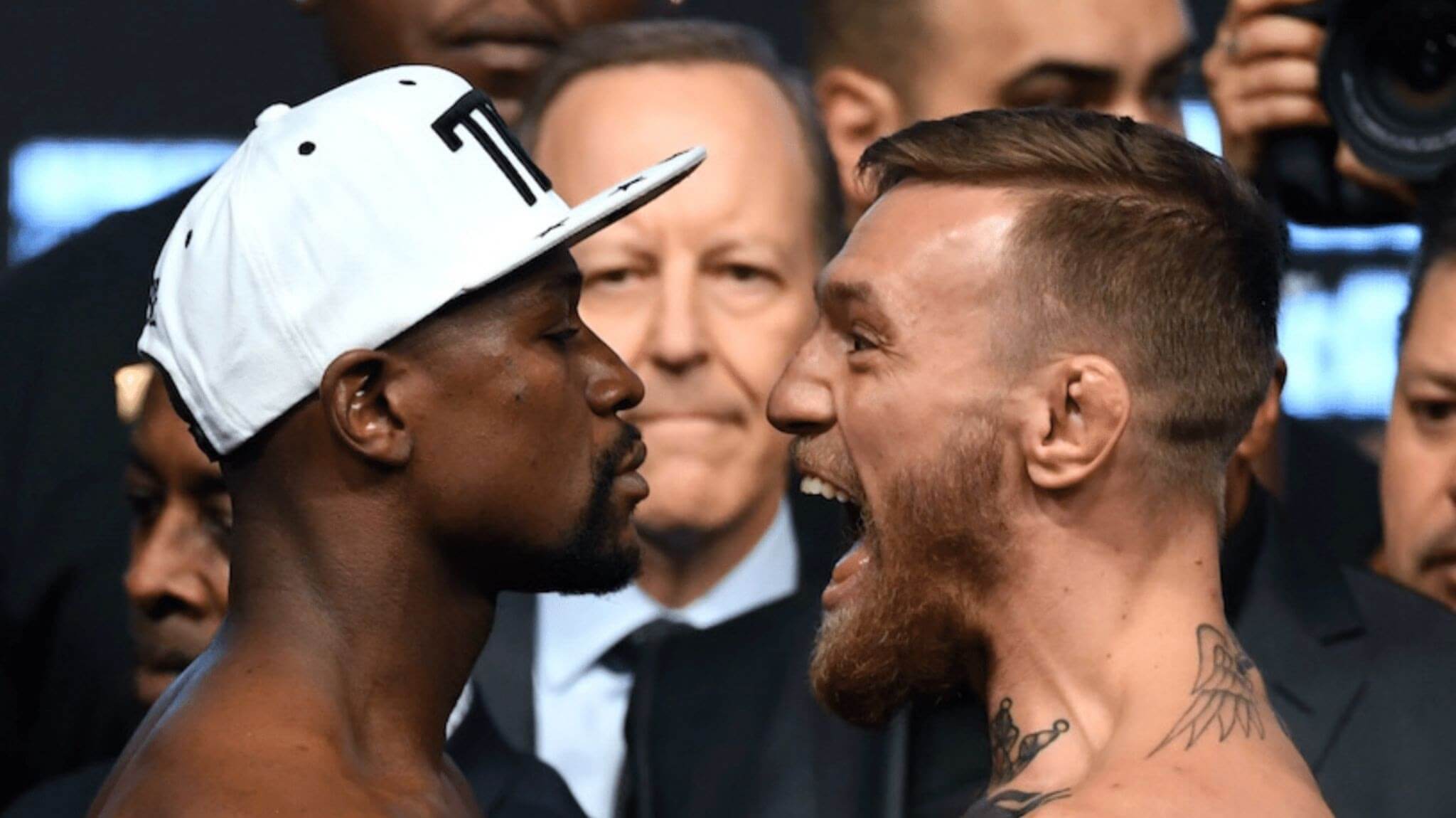
But let's just take an extreme version of this. Take this quote from Justin Kan, the founder of Justin TV, then he flipped that to Twitch, which he then sold on to Amazon. This is an interesting way to think about it.
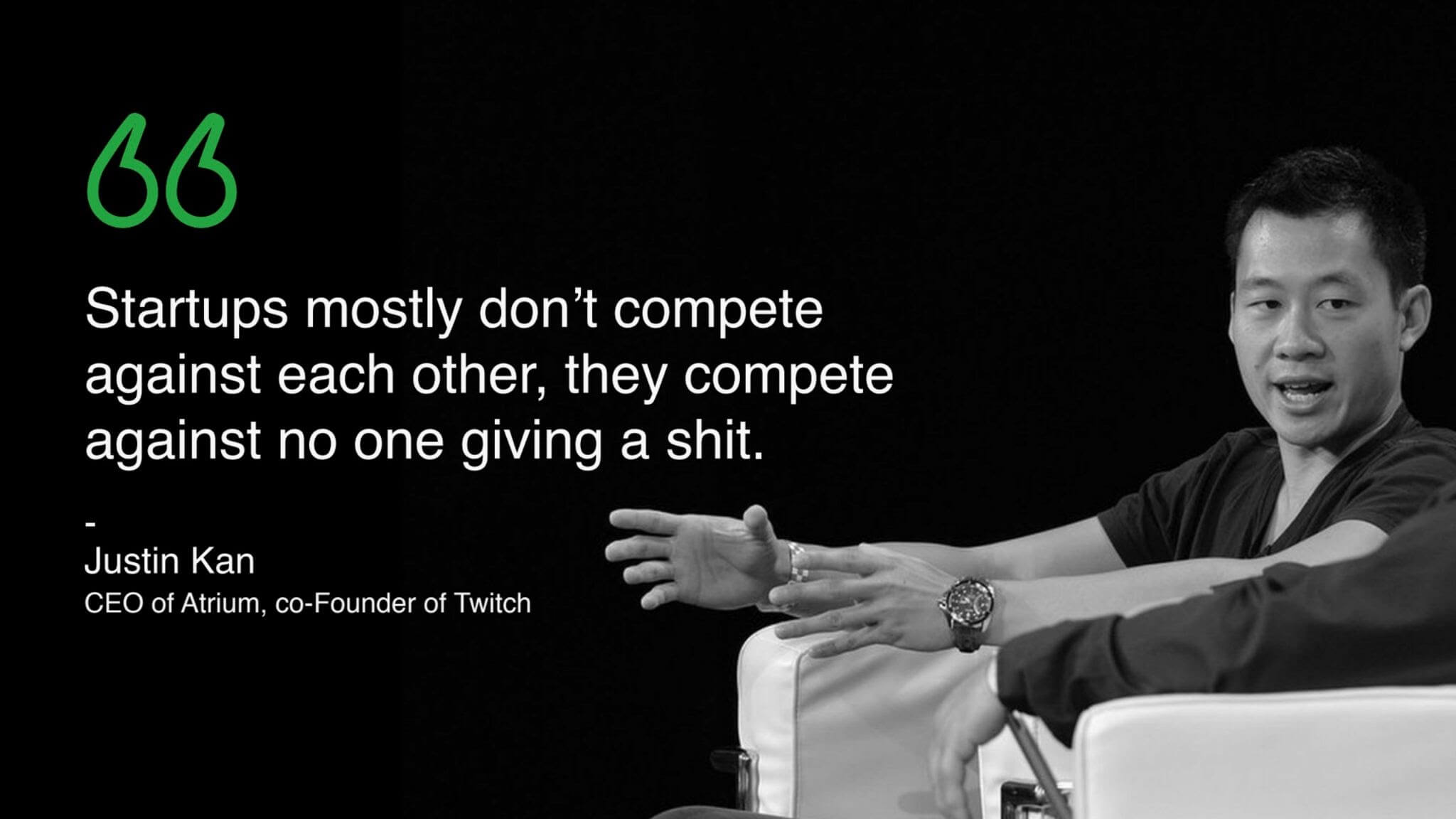
For many people working in B2B, you're probably competing with a spreadsheet, like Google Sheets or Microsoft Excel. Your attention goes to your obvious competitor.
If I read between the lines, what Justin's saying is, there's actually a much larger addressable market out there. You just don't always see it.
Examples
Let's go through a few examples and permit me to go abstract here. Imagine this is you, and these are your competitors.

What if you could compete by a different dimension? You would thereby change the basis of competition itself.
A pop quiz
The year is 1997, the first feature film gets commercially released. Do you recognize it?
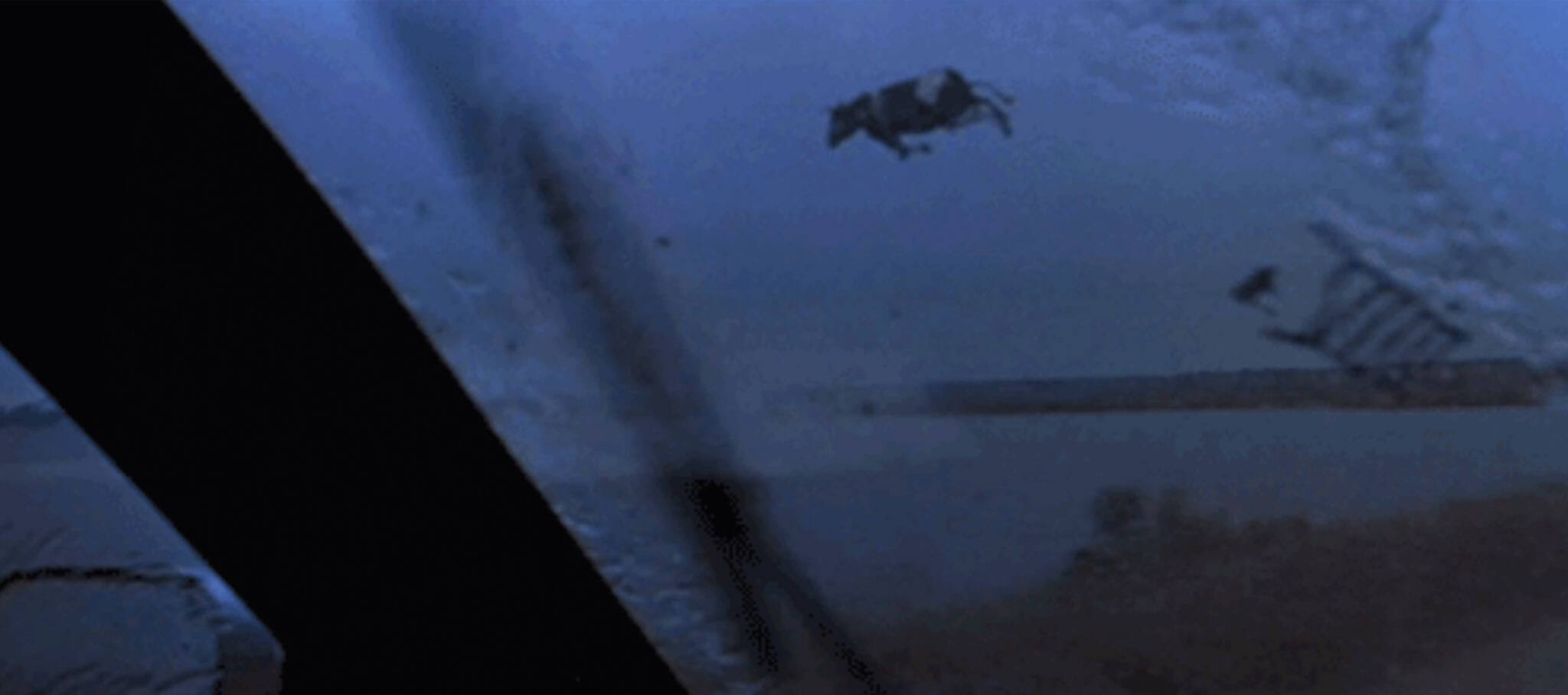
It's Twister.
Netflix & Blockbuster
The following year, Netflix gets launched. V1 of Netflix is in the business of DVD delivery.

The biggest player on the block in this entertainment space is Blockbuster.
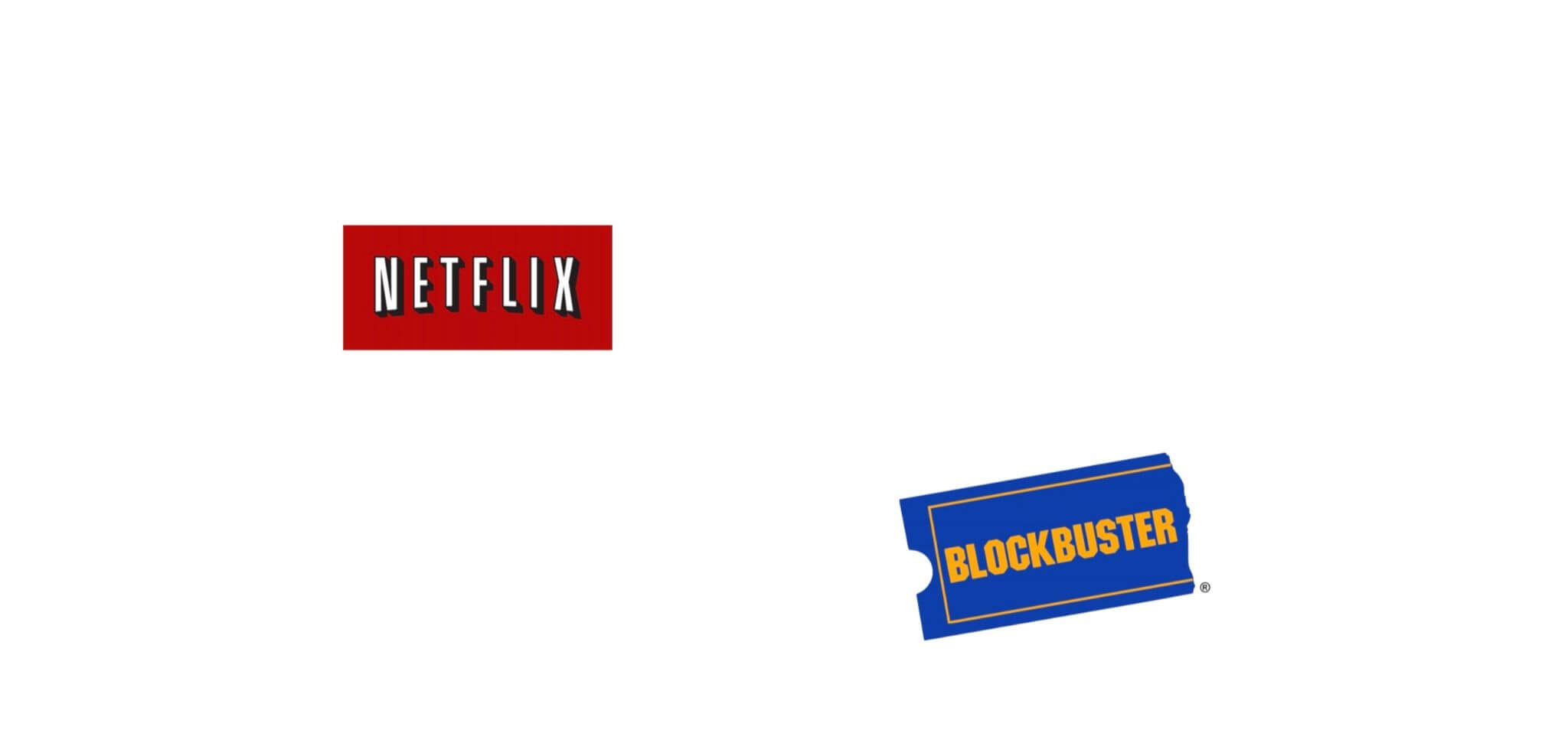
For those who don't know, it sounds so antiquated now, but the idea is, you walk to your local high street and you go to this bricks and mortar shop and you browse these DVDs. Actually, they were VHS cassettes at the time. You'd browse these, you'd choose a movie and you rent it out for the night. Pay three bucks and return it the following day.
Don't underestimate Blockbuster. Blockbuster was a $6 billion business. They were huge. Especially in the US, they were everywhere. Blockbuster didn't pay attention to Netflix, they were thinking "They're that DVD by post business. That's not what we do."
It took them, believe it or not, six years before they even recognized them as a competitor as that's when they went into the business of DVD delivery. Then, in 2007, Netflix starts streaming content, the business most of you know them for.
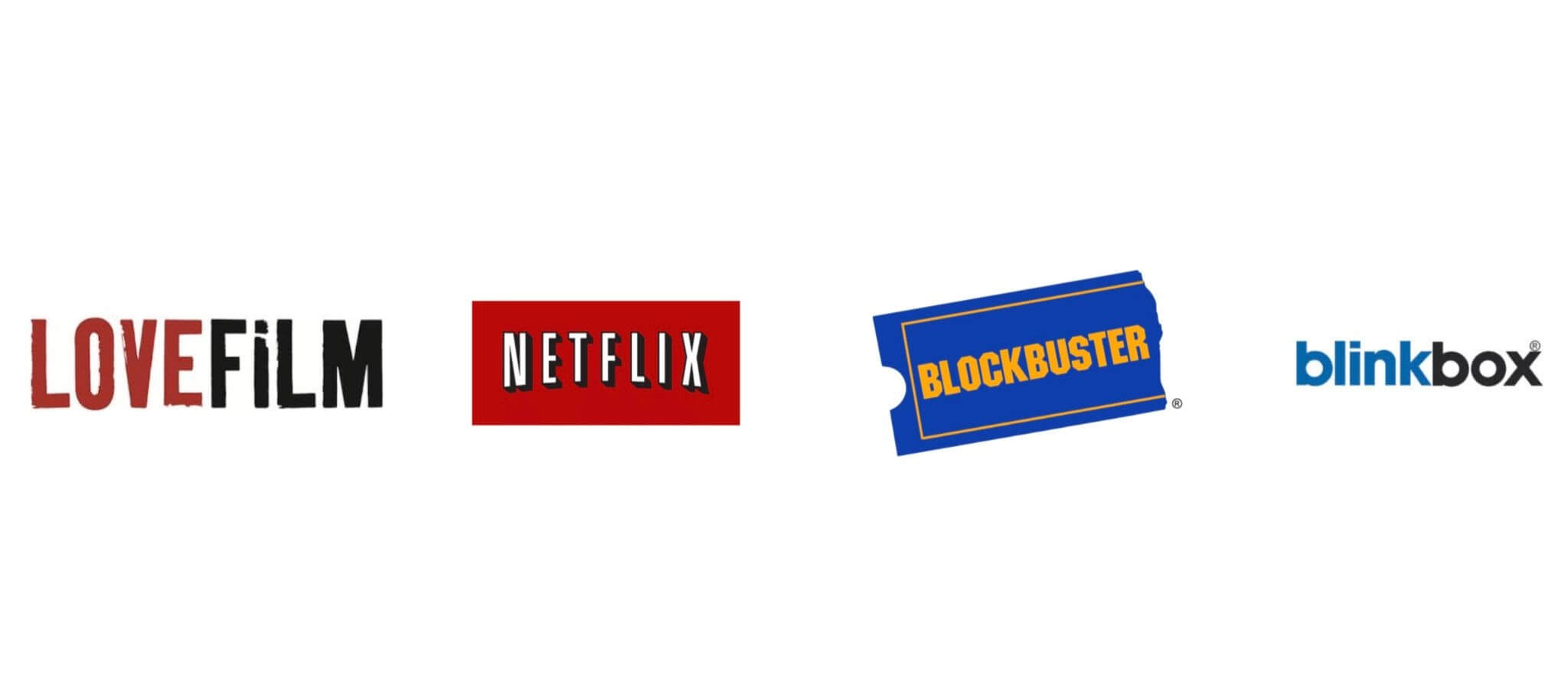
Other players come up in this space. Some you may vaguely remember. Blockbuster, again, was slow to react. It takes them another four years after this to react - 2011 and they're saying, "We're in the business of streaming content, too."
It makes them bankrupt. They can't maintain their bricks and mortar store, as well as these huge server farms.

They go, a few other players disappear, and we're just left with a few players. Amazon chooses to come in, they acquire LoveFilm. Amazon says, "We're in the business of streaming content as well."
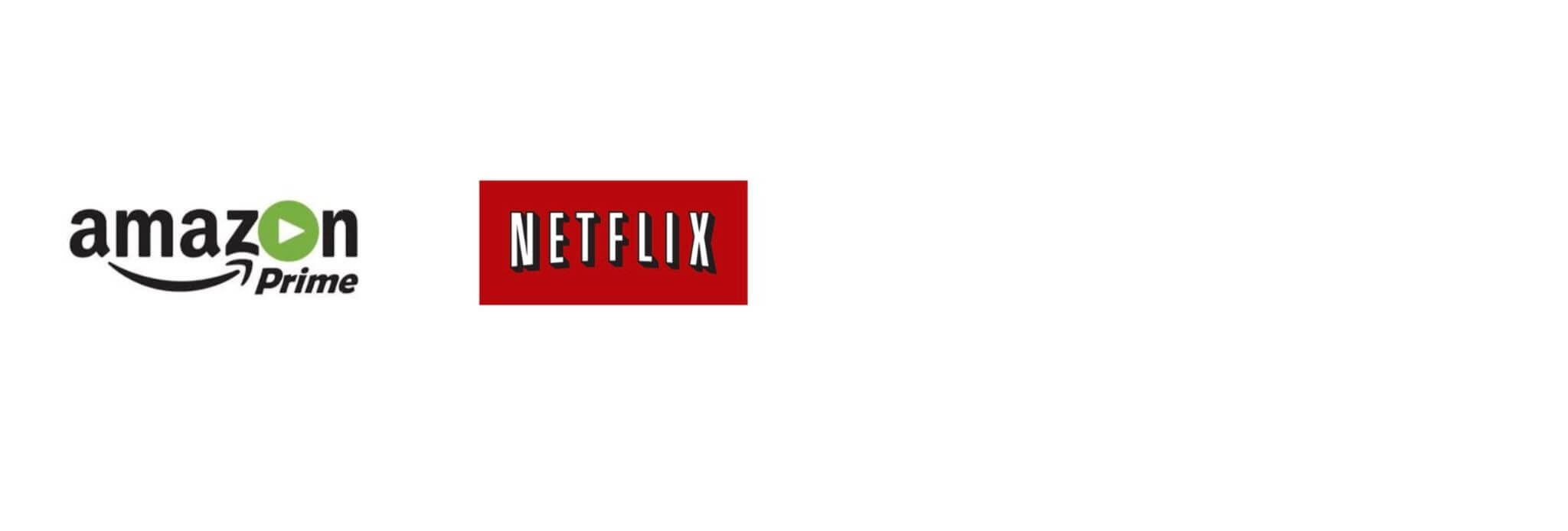
Interesting, Netflix was in the DVD delivery business, they're now in streaming content. It was their next move where they really made their name.
They bought House of Cards. They put all their poker chips on the table. They paid $100 million for two seasons up front. This was unheard of and this is a company that doesn't even do content. House of Cards is a huge success, and their subscriptions go through the roof.
How did Netflix get so lucky?
Well, they've been watching you for the last six years. They know what you're watching. They saw you rewind, what you forward, what you pause. They know the shows you like. They know the moment of addiction.
They know the day you got addicted and the exact moment you got addicted. That's how much they have on you. They also saw the gaps in the market. They could see that anytime they put the political drama on, it got soaked up straightaway.
The likes of Kevin Spacey, at least back in 2013, and David Fincher, who was the director, had a huge following. People were telling them they were crazy at the time. But this wasn't a creative decision, as far as they were concerned, this was maths.
They shifted the dynamic somewhat. They knew this was going to be a success, it was just a case of how much.
Netflix is now in the business of content creation. This is a second flip. They have some very interesting bedfellows now.
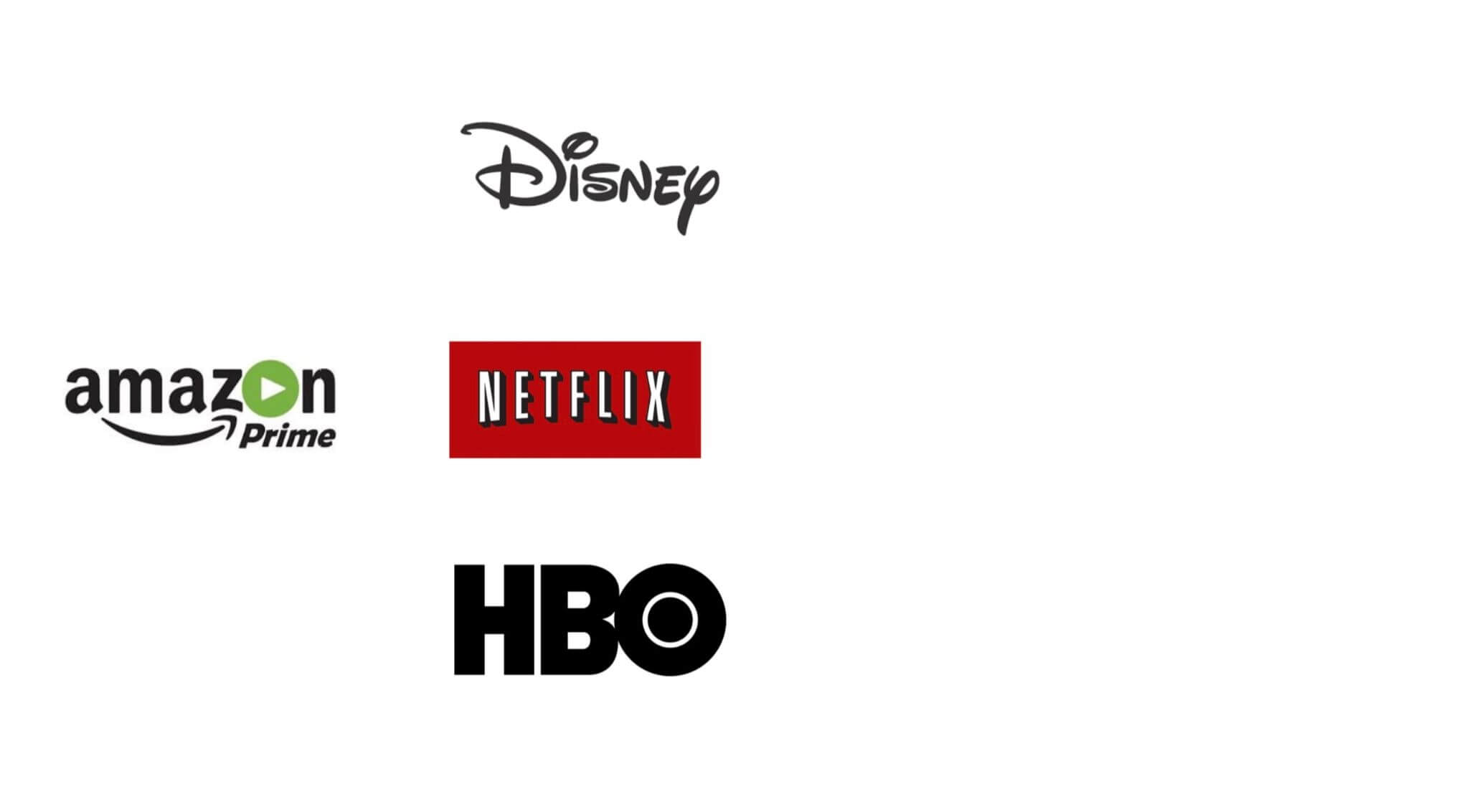
Now they have HBO - in the UK this is referred to as Sky Atlantic. Disney, too. They very quickly realized they have a new competitor in town and they're scared because Netflix understands their customers 100 times better.
That's not even an exaggeration. It's more than that. These other guys do not have the level of data that they do. Of course, Disney starts Disney+. Their flagship show is Star Wars Mandalorian. HBO is Game of Thrones. And they start HBO Go in America, so they go direct to consumer.
Amazon during the time again is saying "Yeah, we do content creation, too." In fact, they paid a quarter of a billion dollars for the rights for the Lord of the Rings TV show. This is their own Game of Thrones. This is huge money.
A fresh look at the competition
Reed Hastings, the CEO of Netflix, doesn't stay awake at night thinking about HBO and Disney. He thinks about competition in a very different way.
Anything you do at the end of an evening to unwind, that's the competition.
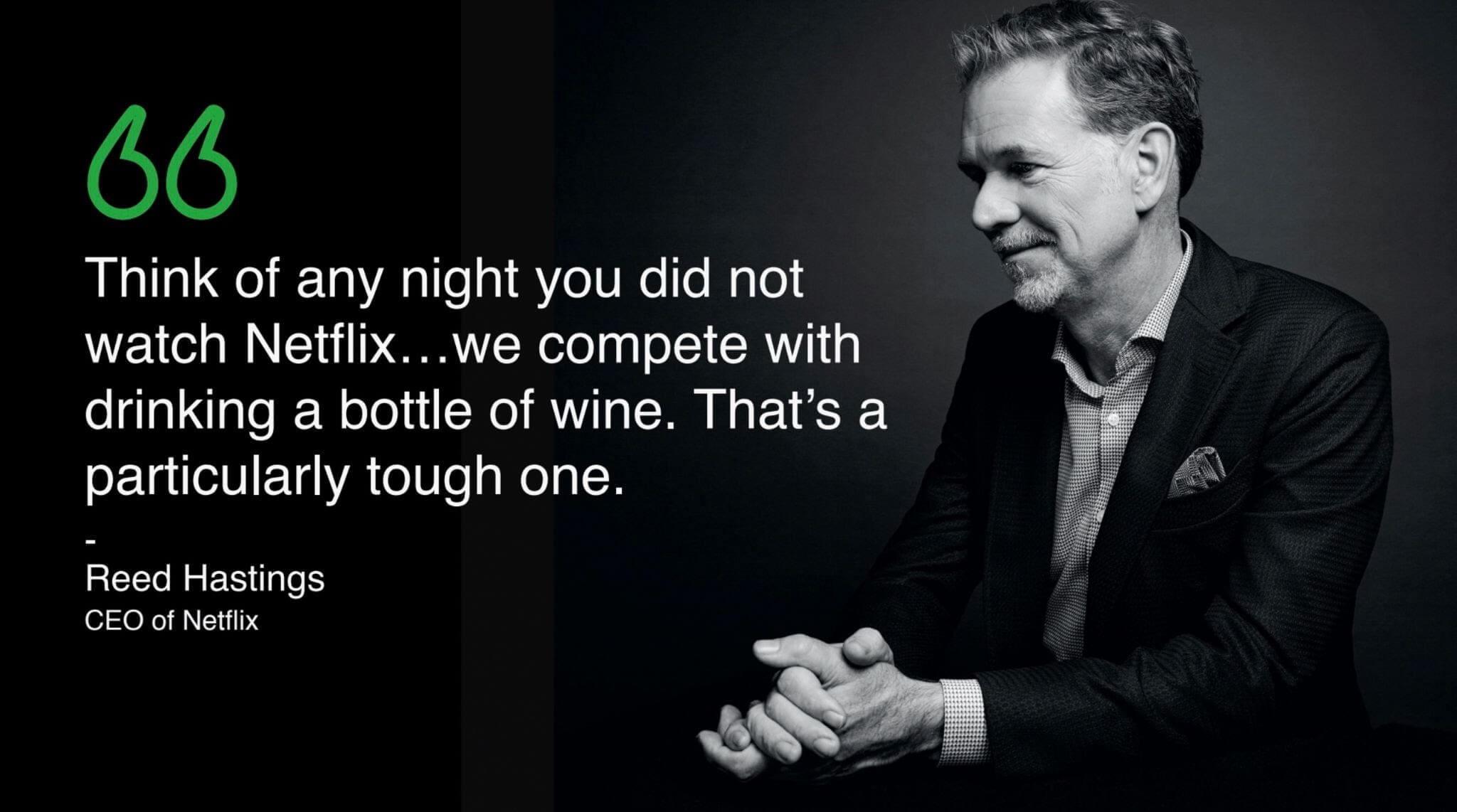
That's a much bigger market than focusing on the likes of Disney and HBO. Let's think about this.
What would you do?
You're now the CEO of Netflix, we're about to hit 2020. This landscape has become very, very crowded.
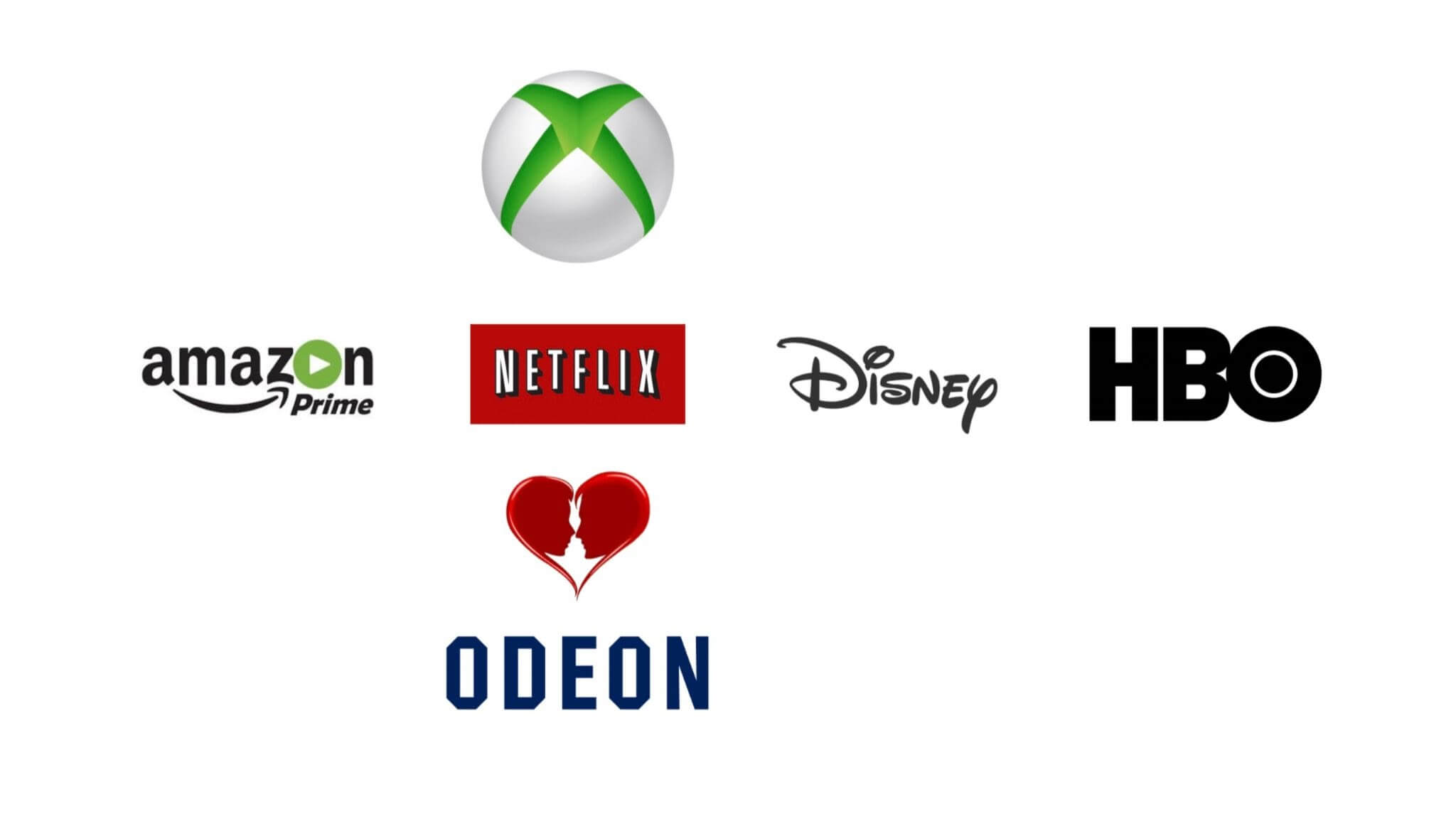
I don't have space here for Apple TV, for Hulu, for Gaia. There are a whole host of other players. Netflix has flipped their business twice already, but what are you going to do in 2020?
Let's play that game. Think about other attributes you can compete by.
Gaming
We're going to unwind at the end of the day, maybe you crack open your Xbox, play a game, you're right in front of the TV anyway.
But, what if Netflix did that? What if Netflix transformed its content into gaming? You watch an episode, boom, do you want to watch the next episode or play a game? It would not surprise me if they enter that space.
I did hear recently they'd started licensing some of their content to other gaming companies. I think it was Stranger Things.
Netflix and chill
They're competing with a chill. I don't know, maybe they move into the hotel business, pay by the hour. But on a more serious note, they could start, (and this might be a bit off-brand) Netflix X' where they have much more R-rated content whether it be horror, whether it be 18+ action, and the like.
Maybe they segment some of the content that gets mixed with family content. Maybe they just partition that off as a premium service.
Movie night
In the evening, you might want to go out with friends, maybe it's a more social event and you watch a movie. You go for a meal and a movie. They could partner with some cinema chains, and have some exclusive content showing in the cinema.
Maybe you have your Netflix plus subscription and you go in, maybe have some director commentary, maybe have some post-movie analysis. Some special content just for Netflix users.
I don't think it's particularly scalable, but it's an option.
Social event
Or, maybe you could bring those friends into Netflix. What if you're watching a show and you have your friends that are on Netflix, they can start experiencing it with you and you can see them on the roster on your TV.
Maybe you could share the emotions with them, the moments they cry, the moments they laugh. A much more immersive experience.
There are many ways that we can start thinking about competition now and that's just a few of them.
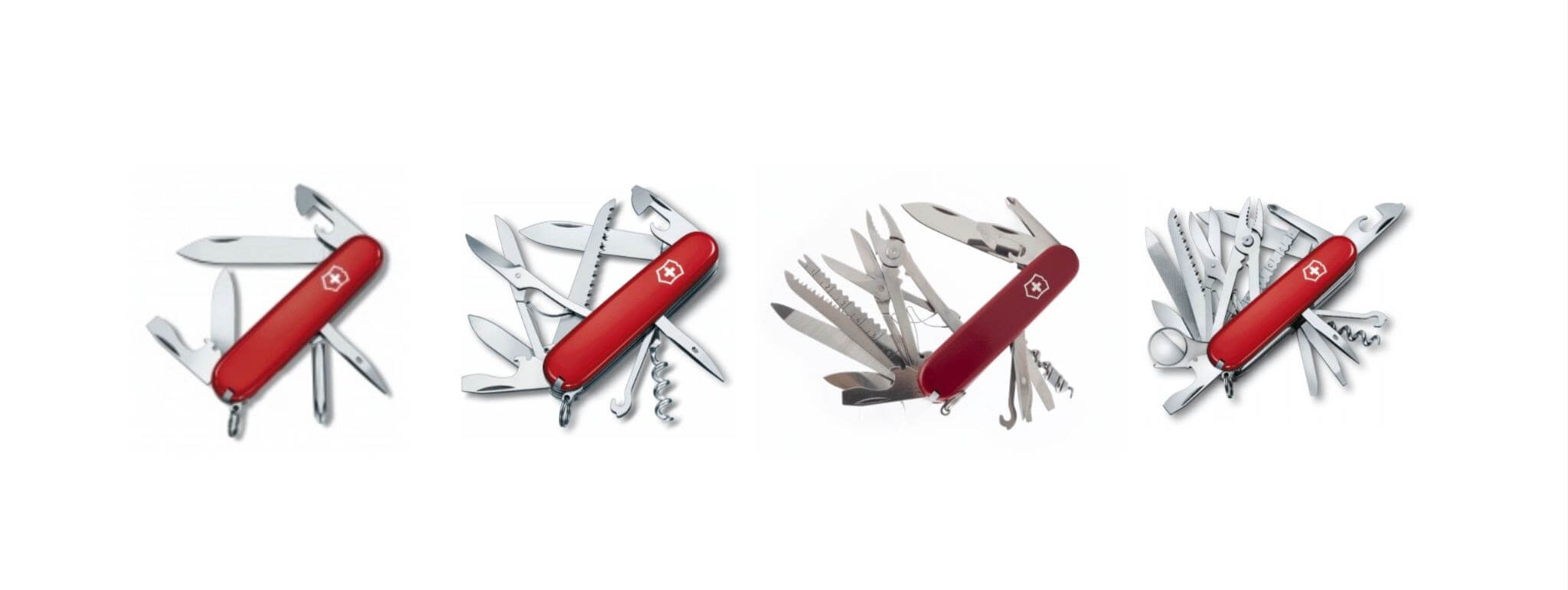
The principle of minimum differentiation
Let's reflect back on this. If you focus on the product, guess what? You're going to get more product. Eventually, you're going to hit a brick wall.
You're going to hit this principle of minimum differentiation, which states that over time, you end up looking like your competitor.
If you’ve been working in product for more than four years, you may have observed this. Your competitor gets Feature A and what do your execs and your customers ask for? Feature A. "Build Feature A. We need Feature A. Everyone's talking about Feature A."
Guess what you do? You build Feature A. But when you build feature B, your competitors are having the same conversation and they build a similar version to what you have, and over time, it's like death by 1,000 cuts, self-inflicted cuts actually, but you don't even notice it. You don't even pick it up originally.
You get to this space where the only difference between you and a competitor is a tick box and that is a game you do not want to play.
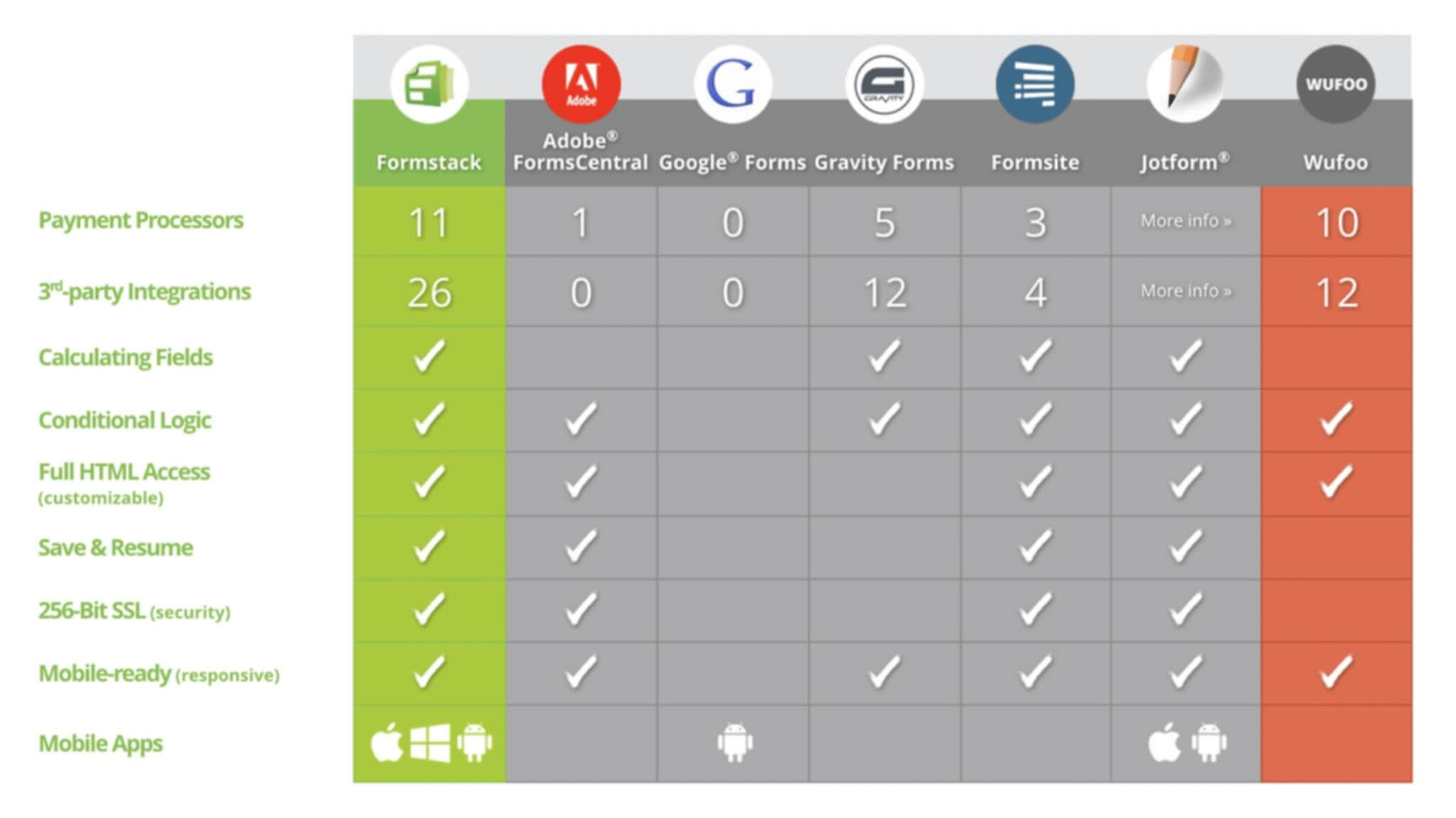
What business are we in?
When you go back to the office, I would ask yourself a few questions here.
Ask your colleagues, what business are we in? They're probably going to be a bit confused because they're either going to think it's just super obvious or they don't actually know.
Both are worrying. So, start that conversation.
Who or what are you competing with?
Think about who or what you're competing with. Think about the different attributes you can compete by.
If you're all trying to find your own slice of the pie, that's really hard. It's very cutthroat.

But if you can look and find another attribute to compete by, then there's a much bigger market out there. It's this invisible pie.

Look for that invisible pie and look for other ways to differentiate yourself.
Thank you.



 Follow us on LinkedIn
Follow us on LinkedIn



